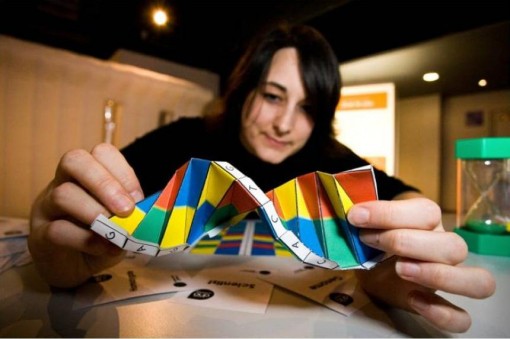The Myth of Learning Styles

While certain content may benefit from being presented in a particular way, there is no evidence that learning is enhanced by changing the mode of presentation to match students learning preferences. DNA Origami by Alex Bateman, Image © Duncan Hall, used under Creative Commons Attribution 2.0 Generic license, via Flickr.com
Looking at how students study, it is obvious that people approach learning in different ways. Some students like to read the textbook once through, some highlight and annotate the textbook extensively, some write and rewrite their notes, others record and play back lectures, others still make and review flashcards, and so on… But what do these differences in study strategies reflect? There are many possibilities. They may reflect variations in the way that people learn, or it may reflect differences in work ethic or learned habits. Researchers have mistakenly interpreted these differences in preference to reflect differences in the way that people learn and learning styles has become a popular and widespread pedagogical approach.
TAGS: education, learning, learning styles, pedagogyMisplaced Objects: How We Hide Things from Ourselves

Image © Sean Hobson, used under Creative Commons Attribution 2.0 Generic license, via Flickr.com
I was excitedly booking airline tickets to Buenos Aires last week when the website prompted me to enter my passport information. “Passport… That’s in the…” But no memory came to mind easily, giving me pause as I tried in vain to recall the now distant memory of returning from my last vacation abroad in an attempt to retrace my steps or thoughts.
Misplacing things is somewhat of a routine annoyance for most of us. The experience is so common that I suspect many of us have more or less accepted that we will spend significant chunks of our lives searching for misplaced objects like mobile phones, keys, glasses, cars, etc. In these more common cases of lost objects, we typically misplace an object inadvertently. This is likely due to inattention. For example, we’re preoccupied with something else at the moment we walk in the door and are not paying attention to where we set down our keys.
These are not the types of misplaced objects I’m going to focus on, though. There is an even more frustrating subclass of misplaced objects: those misplaced as a result of intentional placement.
CONTINUE READING THIS POST…










